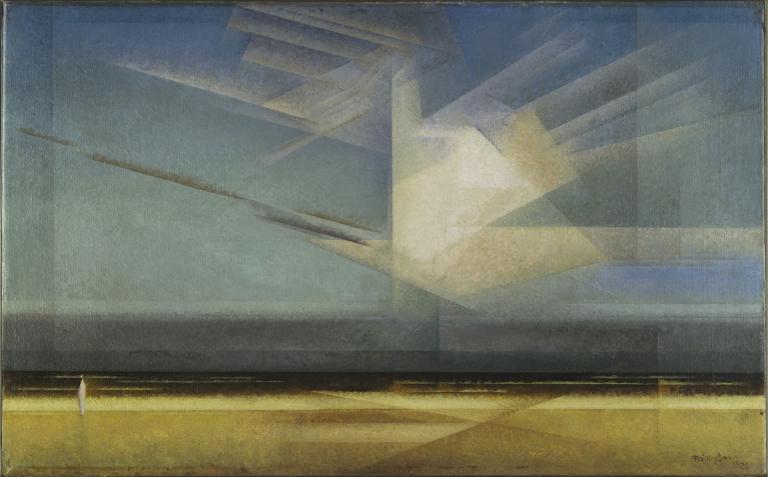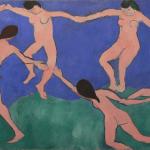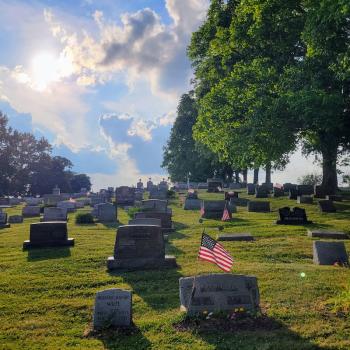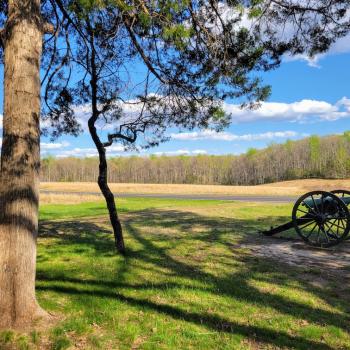These are Pentecostal days, days of conflagration. That might come across as ominous. Is and isn’t. The Heraclitean fire arcing from alpha to omega is limitless love and supreme delight. But having to encompass every motion within its sanctifying motion, this fire of the Holy Spirit must also master malice and the empire of self.

To love, we have to burn hotter than the fires of self-love (“To Carthage then I came burning”). Which means the Holy Spirit must burn us hotter. The fire from above kills to enliven. Everything in us must be destroyed before it can be resurrected.
Have you ever flinched before a person who has offered you pure love? Or had the horrible (but common enough) impulse to strike at the vulnerability in that offer? Our deepest desire is to love and be loved. And yet, it is also our greatest fear, when it comes down to concrete encounters and the life that would have to be shared if love be reciprocated. Control is easy, abuse is easy, co-dependence is easy, self-isolation is easy: we have many strategies to manage love, much easier than the rigors of living true love. For pure love burns to the bone.
We cannot escape the fatality of fire while our limited hearts are being proportioned to a love without limit. In the crucible of moment after chronic moment, the self burns and burns. Whatever makes it through is gold without alloy, silver seven times refined; the rest is dross.
In the last of the Four Quartets, Little Gidding, T. S. Eliot lays this out:
The dove descending breaks the air
With flame of incandescent terror
Of which the tongues declare
The one discharge from sin and error.
The only hope, or else despair
Lies in the choice of pyre or pyre—
To be redeemed from fire by fire.
Who then devised the torment? Love.
Love is the unfamiliar Name
Behind the hands that wove
The intolerable shirt of flame
Which human power cannot remove.
We only live, only suspire
Consumed by either fire or fire.
Eliot remembers the Pentecostal Dove even in the Luftwaffe’s terroristic sorties. Pentecost and hell can look alike, for when the Holy Spirit seeks to visit ignition upon our living deaths, He will make the false but fierce fires of all the principalities and powers serve His good purposes. Where we are powerless, we suffer as we must. The question is, will we do so as servants of love?
The flames that took Saint Joan were diabolically lit, but the Holy Spirit is greater than the powers of this world and superordinates them. As usual, Leonard Cohen theologizes it most profoundly in his “Joan of Arc”:
It was deep into his fiery heart
He took the dust of our Joan of Arc,
Then she clearly understood
If he was fire, oh, she must be wood.
I saw her wince, I saw her cry,
I saw the glory in her eye.
Myself I long for love and light,
But must it come so cruel, and oh so bright?
One way or another, we will burn. In love, for love. Or, in the crucible we will resent the divine Power that has not humbled the elemental powers assaulting us, or resent that holy Power simply for His power, which we would wield ourselves. Each soul is the bride of God, so must surrender utterly. In the end, all there is, is the consuming fire of Being, and as it laps at us, we are either enthralled or enraged.
Saint Peter writes in his second letter:
But the Day of the Lord will come like a thief, in which the heavens will pass away with great suddenness, and the elements, burning up, will be dissolved, and the earth and the works in it will be disclosed. As all these things are to be dissolved in this way, what sort of persons ought you to be in holy conduct and godliness, awaiting and hastening the coming of the Day of God, because of which the heavens, being set on fire, will be dissolved and the elements, burning up, will melt. But, according to His promise, we await new heavens and a new earth, in which justice dwells. (2 Peter 3:10-13)
The transformation of this world, the coming of ultimate justice, cannot be separated from our being purified, being-made holy, which necessarily fruits in ardent works, as the Holy Spirit of ever-greater love sweeps through us and wings through history.
The Dove broods over a world desertified by the heat of self-love. The solution is to burn hotter. But as we agonize in the love-woven shirt of flame, we must remember: the Master of these burning hearts is pacific all through, wants only the good of each and all. This Dove nestles the wilderness world and the wilds of our self-lacerating, love-fleeing hearts. When limitless love fills us full, the sevenfold flame will refresh our souls with the clarity of Love’s light. We will find our repose in the consuming fire.
Pentecost circles back on Annunciation, in a matrimonial ring, flesh making visible the liberty of a love bent on the justice and glory of another. So the Kingdom comes, empire of endless romance and solidarity.
[The painting is one of my great favorites, Lyonel Feininger’s Bird Cloud. It’s like an Annunciation over the whole world. The image is used with permission from the Harvard Art Museums, which house exquisite collections I heartily recommend visiting.]











